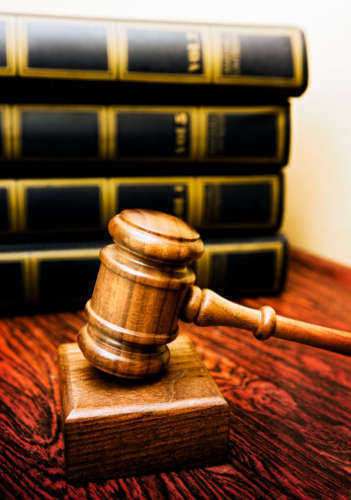The Short Biography Of Thomas Jefferson
Thomas Jefferson was a Founding Father of the United States who was instrumental in the development and establishment of democratic principles in the country. He was born on April 13, 1743, in Albemarle County, Virginia and was the third of ten children.
Early life:
Thomas Jefferson was a well-educated man with a broad range of interests. He was trained as a lawyer and studied at the College of William and Mary in Virginia, where he developed a lifelong love of learning. Jefferson was also an accomplished musician, architect, and inventor, and maintained correspondence with many of the leading intellectuals of his time.

Jefferson's Political Career:
In 1769, Thomas Jefferson began his political career as a member of the Virginia House of Burgesses. He later served as Virginia's delegate to the Continental Congress, where he was a co-author of the Declaration of Independence.
Jefferson also served as the United States Minister to France, where he became a proponent of the French Revolution and developed close relationships with many of its leaders. He later served as Secretary of State under President George Washington, where he advocated for a strict interpretation of the Constitution and opposed plans to create a strong central government.
In 1801, Thomas Jefferson was elected as the third President of the United States, after defeating John Adams in a contentious election. During his time in office, Jefferson helped to expand the territory of the United States through the Louisiana Purchase, and worked to reduce the power of the federal government in favor of state and individual rights.
Jefferson's Legacy:
Thomas Jefferson is remembered as one of the most important and influential leaders in the history of the United States. He was a champion of democracy and individual rights, and worked tirelessly to ensure that all citizens would be free and equal under the law.
Jefferson's ideas and beliefs continue to have a lasting impact on American society, and his contributions to the development of democratic principles remain a source of inspiration for millions of people around the world. From his advocacy for religious freedom, to his vision of an agrarian-based economy that favored small farmers over wealthy elites, Jefferson remains an icon of American democracy and a reminder of the ideals that have made the country great.
Thomas Jefferson, widely considered one of the most respected and influential of the FoundingFathers, served as both President of the United States and principle author to the Declaration of Independence. Jefferson constantly promoted his ideas of liberty and Republicanism in the attempt to thwart British imperialism and provide a new democracy for the American people.
Dissimilarto many colonial politicians or Founding Fathers, Jefferson was considered aworldly politician. He was a man of the Enlightenment and routinely made tripsoverseas to interact with foreign intellects. The prominent Founding Fatherbelieved in the separation of church and state, and a balancing of powersbetween federal and local governments. Jeffersonian Democracy often showed discontent for authoritative governments, for it distrusted large empires, cities, and financiers.
In his first published work, A Summary View of the rights of British America, Jefferson outlined the injustices of the British Parliament and cited numerous violations against natural laws. Many of the Founding Fathers authored publications thatdenounced unjust British taxation as a violation against Constitutional ortangible laws. Jefferson, however, attacked the levies as an inequity against human rights.
Jefferson radically believed that colonists possessed "natural" rights to govern themselves and the reach of the British rule did not extend to infiltrate the colonial way of life. Like the other anti-British publications, A Summary View of the Rights of British America did concretely expose thelegality issues involved in taxation of colonies that were not overseen by theParliament. However, Jefferson's overwhelming thesis revolved around the basic rights of the individual and the necessity of separated life from government.
Thepublication, represented by the Virginia Delegation, was originally intended tobe delivered at the first Continental Congress. However, Jefferson's ideas weresimply viewed as too radical. Although the pamphlet failed to reach State leaders in the Congress, it still served as a critical rallying cry used to spark the Revolution.
Shortly following the outbreak of theRevolutionary War, Thomas Jefferson served as a delegate to the SecondContinental Congress in June of 1775. Although the war already commenced,Congress felt the necessity to fully establish independence with thedrafting of an official document. As a result of his influence and literary skills,Jefferson was appointed to a five man committee responsible for authoring theDeclaration of Independence.
Using theVirginia Constitution as his framework, Jefferson was given chiefresponsibility to author the historical document. Even though a quarter of the original text was deleted, the Declaration of Independence was approved on July 4th, 1776, and served as Jefferson's most notable and stunning achievement. The Preamble of the Declaration is still considered one of the most revolutionary and thought-provoking literary passages on human rights.
Thomas Jefferson returned to Virginia and servedas governor and delegate through 1784. While in office, Jefferson set out toreform Virginia's system of laws to better reflect the State’s new status as ademocratic jurisdiction. Along with transforming the education system,Jefferson established freedom of religion and organized the judicial system forstreamlining purposes. Jefferson also eliminated capital punishment for all crimes other than murder and treason.
Followinghis work in Virginia, Jefferson served as a minister to France from 1785-1789.Although his abroad status disabled Jefferson from attending the PhiladelphiaConvention, he was informed of the specifics and events that led up to the drafting of the American Constitution.
The authorof the Declaration of Independence was commonly distraught over the lack ofindividual freedoms within the document, but generally supported the principlesand ideology of the Constitution. Jefferson's absence in the drafting of the Constitution was severely missed. However, his words and teachings perpetuallyloomed over the Founding Fathers in attendance. When Jefferson was elected President in 1801 his impact grew larger as he purchased the Louisiana Territory, repealed numerous Federal taxes, barred slavery importation, and further progressed individual rights and thought.